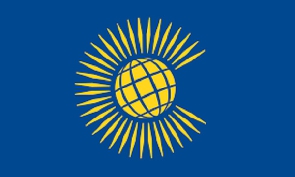In 1949, countries, mainly former British colonies decided to maintain an association between countries that had once been part of the British colonies, but which were considered ‘free and equal’.
Came to be known as Commonwealth countries, these former colonies which span the globe and, with a combined population of 2.5 billion, include almost a third of the world’s population.
Thus the Commonwealth is a voluntary association of 54 independent countries, almost all of which were formerly under British rule and has King Charles III as the Head. The role however is an important symbolic one.
The association has operated with five main goals which is to strengthen civil society in the achievement: democracy and good governance, respect for human rights and gender equality, poverty eradication and sustainable, people-centred development, and to promote arts and culture.
In addition, it adopted a charter 10 years ago which is a document of the values and aspirations which unite the Commonwealth. The Commonwealth Charter also expresses the commitment of member states to the development of free and democratic societies and the promotion of peace and prosperity to improve the lives of all the people of the Commonwealth.
As a matter of fact, the Charter was agreed by all Commonwealth Heads of Government on December 14, 2012, which they deemed as an important outcome of the modernisation process and a milestone for the Commonwealth.
Many years down the lane, member countries agree that the Commonwealth needs a new strategy to effectively address economic gaps in the 56 member states as the charter turns 10 years.
Ghana, a prominent member has on the occasion of Commonwealth Day, proposed the development of a new strategy which it said will also help maintain Commonwealth ideals in the face of rising populism.
Speaking at a flag-raising ceremony held at the Ministry of Foreign Affairs in commemoration of the 71st Commonwealth Day, the Deputy Minister of Foreign Affairs and Regional Integration, Thomas Mbomba, said the new strategy would fulfill the spirit of Commonwealth Charter, which expresses the commitment of member states to the development of free and democratic societies and the promotion of peace and prosperity to improve the lives of their people.
He said at a time when countries, particularly African countries, were still experiencing the adverse effects of the COVID-19 pandemic, there was the need for urgent coordinated global action to recover from all present challenges and build a resilient and prosperous future for all.
He said Ghana remained committed to the Organisation’s fundamental principles and shared values of development, democracy and peace, saying, “Let us work together, in the spirit of cooperation to build a more resilient world against the future”, he said.
Indeed, the Ghanaian Times shares in the view of the Deputy Minister and supports the idea of a new strategy for the Commonwealth that would be more beneficial to all the people.
No doubt, the world has changed in many facets and it is wise for the association to change with the times and adopt a new strategy that would help in resolving common threats facing all member states.
Editorial News of Wednesday, 15 March 2023
Source: ghanaiantimes.com.gh

















